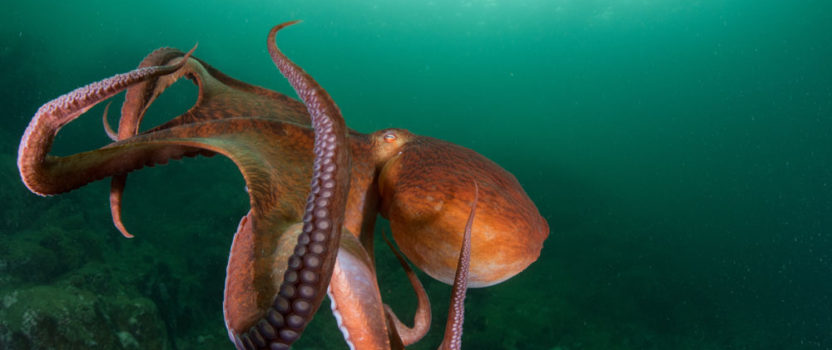Scientists Plead The Case Against Growing Practice of Octopus Farming
Four scientists have banded together to make the case against the farming of octopuses, arguing that these intelligent cephalopods are wholly unsuited to life in captivity.
Octopuses are difficult to farm and, despite efforts to do so for many years, they still make for a tricky business model. The biggest problem has been keeping young octopuses (known as larvae) alive, in part because so little is known about their nutritional needs. As a result, octopus ‘ranches’ have become increasingly common, notably in Australia, Spain, Mexico and Hawaii, in which juvenile octopus are caught in the wild and then grown in tanks or offshore cages.
For four marine researchers from the universities of New York, Sydney and Sussex, who recently presented the case against octopus farming in the journal Issues in Science and Technology, these ranches are already problematic, but now, a swath of investment and research looks set to finally make fully-farmed octopuses a reality. In June 2017, the Japanese company Nippon Suisan Kaisha (Nissui) announced that it had successfully hatched eggs of fully-farmed octopuses using artificial incubation. It predicts a fully-farmed, market-ready octopus by 2020.
The case against this practice is centred on both ethical and environmental considerations. The ethical objections are simple – octopuses are intelligent and mysterious creatures and not enough is known about them to ensure they live a good life in captivity. ‘Octopuses exhibit cognitive and behavioural complexity and they appear capable of experiencing pain and suffering,’ note the authors of the article, pointing to one study which showed that octopuses retain knowledge of how to open a screw-top jar for at least five months.

As a result, ‘octopuses are likely to want high levels of cognitive stimulation, as well as opportunists to explore, manipulate and control their environment. Intensive farm systems are inevitably hostile to these attributes,’ they argue. Reports from experimental farms have also suggested that octopuses are unsuited to living in close confines; aggression and cannibalism are common complaints, with some even launching themselves out of the tanks and on to the floor.
The environmental arguments reflect those applied to aquaculture as a whole, including concerns about increased pollution from the nitrogen in fish faeces, contamination from fertilisers and algaecides, and excessive use of antibiotics. In addition, the researchers argue that the carnivorous nature of octopuses, as with many other farmed fish, make them particularity unsustainable.
‘Aquaculture to date has not alleviated pressure on the oceans, it has actually exacerbated it because most of what we’ve chosen to farm in recent years is carnivorous, so we have to fish more animals out of the ocean to feed them,’ explains Jennifer Jacquet, an assistant professor at New York University. She notes that around one-third of the global fish catch is already turned into feed for other animals and that many fishmeal fisheries are in decline.
Given the potential for harm, the researchers question why so much money and research is being pumped into octopus farms. ‘This isn’t a food source around the world that people are relying on, this is a luxury market,’ says Becca Franks, also from New York University. ‘There won’t be that many consequences to society if we don’t farm them. But if we do go down this road, there’s going to be any number of problems and not necessarily very many solutions.’
By Katie Burton
This was published in the April 2019 edition of Geographical magazine



Leave a Reply
Your email is safe with us.